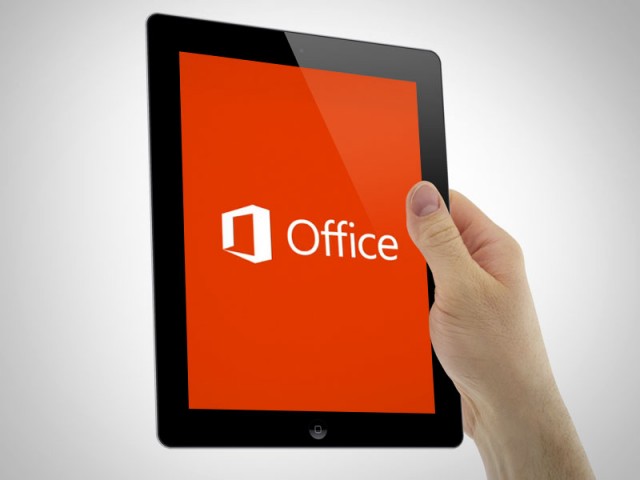 NEWS
NEWS
 NEWS
NEWS
 NEWS
NEWS
![]() There’s been a lot of people expecting an Office 2013 for iPad announcement for some time. Then came the revenue standoff for Office 365 on iPad devices, where Apple wanted a significant share of the product’s revenues and came at odds with Microsoft which justifiably would not relent. Many have been stood by expecting the Office 2013 for iPad news that has still not come and apparently never will. Ballmer went so far as to state the following on Bloomberg Businessweek:
There’s been a lot of people expecting an Office 2013 for iPad announcement for some time. Then came the revenue standoff for Office 365 on iPad devices, where Apple wanted a significant share of the product’s revenues and came at odds with Microsoft which justifiably would not relent. Many have been stood by expecting the Office 2013 for iPad news that has still not come and apparently never will. Ballmer went so far as to state the following on Bloomberg Businessweek:
How’s that Office for the iPad coming along?
I have nothing to say on that topic. We’re very glad with the product, very happy with the product that we’re putting in market. It makes sense on the devices like the Mac and the PC. We have a product that we think makes a lot of sense. We do have a way for people always to get to Office through the browser, which is very important. And we’ll see what we see in the future.
It looks to me like Office for iPad is over – so just forget it. That leaves us with the following – lots of iPads seeping into the enterprise and not being particularly useful productivity tools in terms of business. Take it from an iPad user, almost everything on the device is a workaround or hack on some level or another. Even a good deal of BYOD solutions come about to introduce Windows desktops to iPads. There is nothing native or fluid about the experience. Not when compared to having a true full Office experience, and no, Office365 will not be exactly the same when it is ‘webified’ and experienced on an iPad.
I covered this saga in The Death of BYOD – Courtesy of Apple and Google:
BYOD exists entirely because of Microsoft, not the iPad, and not because of any Android devices. The reason why is because of ActiveSync. An iPad without ActiveSync is a giant Kindle Fire – a consumption device. The same goes for Android devices and for both of those smartphone platforms. Without ActiveSync, you do not get to a majority of corporate email. If somewhere along the line during this explosion of mobility, had Microsoft closed off ActiveSync, there would be no BYOD. People would not have started bringing them into IT environments and trying to do much business-wise because without email, calendaring, and contacts, they would be useless.
The bottom line in this story is that Android and iOS are not suitable for your typical enterprise environment. Today’s news that iOS 6.1 was released and is causing corporate IT headaches by swamping logs with synchronization information is not helping to avert this track. To put it simply, the serious enterprise is frustrated by the amount of diversity of issues that a straight BYOD infrastructure introduces.
![]()
![]() This is where the Surface Pro is positioned to do well. There will be continued debate as to whether this can or will replace the iPad in the business world. But from where I’m sitting, not only as a writer but as a technology implementer and business technology adviser that has lived the BYOD phenomenon, no one wants their arm twisted into supporting something that just got out there in the environment. With these issues and still no Office on the iPads, I am willing to say that there will be a lot of decisions based on trials of the Surface Pro and other similar devices.
This is where the Surface Pro is positioned to do well. There will be continued debate as to whether this can or will replace the iPad in the business world. But from where I’m sitting, not only as a writer but as a technology implementer and business technology adviser that has lived the BYOD phenomenon, no one wants their arm twisted into supporting something that just got out there in the environment. With these issues and still no Office on the iPads, I am willing to say that there will be a lot of decisions based on trials of the Surface Pro and other similar devices.
So far, it seems they are moving these things to the tune of the 128GB version being unavailable online, but they are having issues with the launch it seems as a lot of people are unable to get their hands on it. We’ll learn more, but this could be due to supply issues. So perhaps it is goodbye to the iPad for Office, they are missing on revenue for sure, but I don’t believe they are missing out on that much. The big play is for enterprise adoption, somewhere iPads don’t belong anyway.
(image credit: gaymer.org)
Support our mission to keep content open and free by engaging with theCUBE community. Join theCUBE’s Alumni Trust Network, where technology leaders connect, share intelligence and create opportunities.
Founded by tech visionaries John Furrier and Dave Vellante, SiliconANGLE Media has built a dynamic ecosystem of industry-leading digital media brands that reach 15+ million elite tech professionals. Our new proprietary theCUBE AI Video Cloud is breaking ground in audience interaction, leveraging theCUBEai.com neural network to help technology companies make data-driven decisions and stay at the forefront of industry conversations.